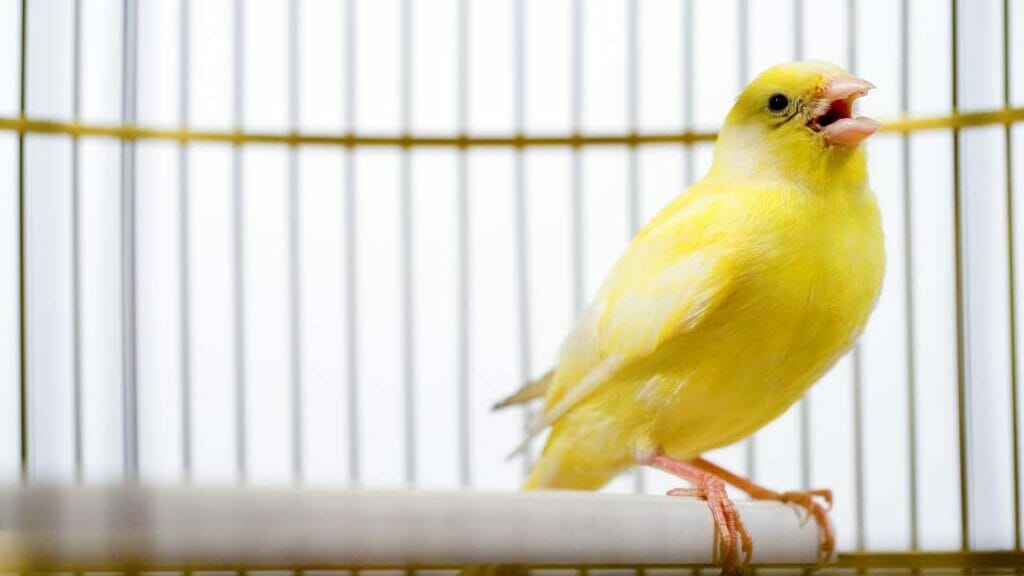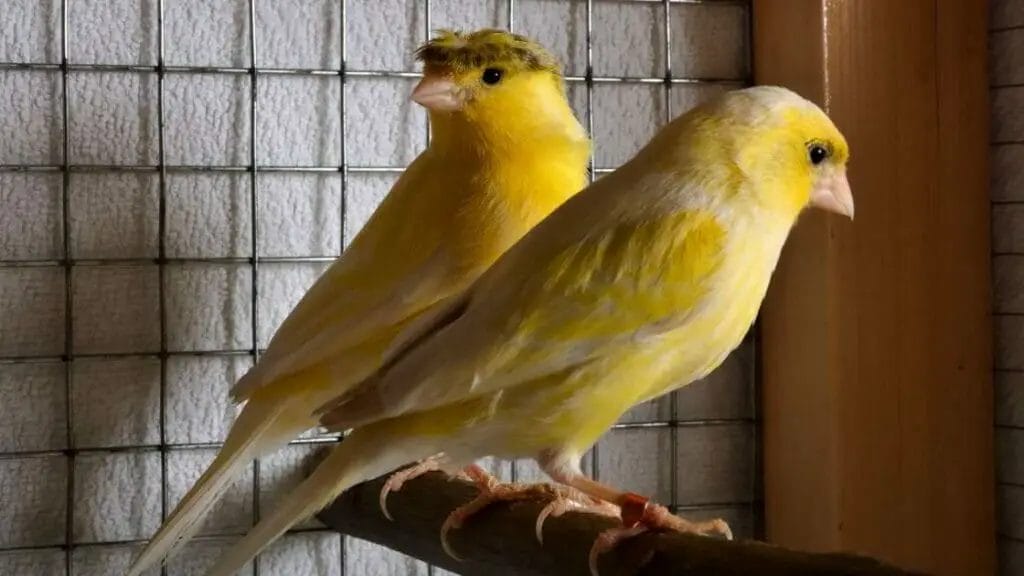Canaries are songbirds known worldwide for the melodious sounds they produce when they are happy or are looking for mates. What makes them really interesting is how they attentively listen to the sounds around them and incorporate those into their songs.

However, knowing they have the lungs to belt an entire song, you might be wondering if their performance can turn from beautiful singing into a headache-inducing noise.
In this article, we will explore the noise level canaries make and whether or not they can be considered noisy pets. We will also discuss the factors that affect their vocalization patterns and how you can manage their noise levels.
Canaries and their vocalizations
There is no question about how well canaries can sing and how lovely their songs are. However, their vocalizations are not limited to just singing.
Besides singing, canaries can be quite chatty and make a variety of other sounds like chirps, trills, and tweets. These sounds can be quite pleasant to hear but are noisy when they become excessive or disruptive.
Canaries are very social birds and use their vocalizations to communicate with other birds and their owners. They also use their songs to attract mates and establish territory. Male canaries are more vocal than females and are known for their elaborate and complex singing.
What’s more, while canaries are typically not as loud as some other bird species, you will still be able to hear them from a distance.

Factors that affect canary noise levels
Several factors can affect the noise level of canaries. The age, sex, and breed of the bird can all play a role in their vocalization patterns. As mentioned earlier, male canaries tend to be more vocal than females, and some breeds are more talkative.
The environment in which the canary is kept can also affect its noise level.
If the bird is kept in a noisy or stressful environment, it may sing more frequently or louder to try and establish its territory or communicate with other birds.
Conversely, if the environment is too quiet or lacks stimulation, the canary may become silent or less vocal.
The time of day can also affect canary noise levels, and the volume of their singing can vary depending on their mood and the time of day.
The canaries tend to be more vocal during the morning and evening, and they may sing louder or more frequently if they are feeling stressed or disturbed.
Canaries may also sing more frequently or loudly during the breeding season, which typically occurs in the spring.
The different types of canary songs
Canaries have several different types of songs, each with its own unique pattern and meaning. The most common type of song is the “chirp,” which is a short, simple, and pleasant sound that canaries use to communicate with each other.
Another type of song is the “trill,” which is a longer and more complex sound that canaries use to attract mates or establish territory. Trills can be quite beautiful to hear and are often accompanied by a series of hops and flutters.
Canaries can also sing a “twitter,” which is a series of short, rapid notes that range from soft and gentle to loud and intense. Canaries use twitters to express their excitement or distress.
How to train a canary to be quieter
If you find that your canary’s vocalizations are becoming excessive or disruptive, there are several things you can do to help train them to be quieter.
- Provide your canary with a consistent routine and environment. Remember to put the cage in a quiet and peaceful area of your home and that they have plenty of toys and stimulation to keep them occupied.
- Establish a set of “quiet hours” each day for your canaries, during which you ask them to be silent. This can be done by covering their cage, using a specific command, or giving hand signals to let them know it is time to be quiet.
- Reward your canary for being quiet. Whenever they are quiet for an extended period, provide them with a treat or praise to reinforce the behavior. Over time, your canary will learn that being quiet is a desirable behavior and will be more likely to comply.

Tips for minimizing canary noise
If you live in a quiet neighborhood and find are concerned about the noise level of your canary, there are several things you can do to minimize their vocalizations.
Here are some tips you can follow:
- Give your canary plenty of stimulation and socialization. This can be done by providing them with toys, perches, and other objects to keep them occupied.
- Try covering their cage with a cloth or blanket during the night, which can help to reduce their vocalizations during the early morning hours. Additionally, using a white noise machine or playing calming music in the room can help drown out the sound of your canary’s singing.
- Remember that canaries are social birds and need regular interaction and attention from their owners.
If your canary is feeling neglected or isolated, they may become more vocal in an attempt to communicate with you.
Spend time with your canary each day and shower them with plenty of love and attention to help minimize their noise levels.
The best cages for minimizing canary noise
Choosing the right cage for your canary can help minimize their vocalizations.
The best cages for canaries are those large enough to allow them to move around freely and provide plenty of stimulation.
Look for a cage with several perches and toys to keep your canary occupied.
Also, get a cage made from sturdy and durable materials, as canaries can be quite active and may damage a flimsy or poorly constructed cage.
Additionally, choose a cage with a solid bottom to reduce the amount of noise your canary makes. A solid bottom can also make cleaning the cage easier and help prevent messes from falling onto your floor or furniture.
Addressing concerns about noisy canaries as pets
While canaries can be quite vocal, they are typically not considered noisy pets. Their singing is often quite pleasant to hear, and they are generally much quieter than other bird species like parrots or cockatiels.
If you are concerned about the noise level of your canary, it is important to understand that their vocalizations are a natural part of their behavior.
With proper training, stimulation, and socialization, the noise level can be minimized and you would be able to create a peaceful and enjoyable environment for both you and your feathered friend.